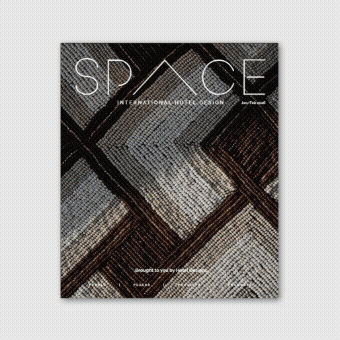The latest trend to soar in travel and hospitality is the ‘workation’. A study carried out by Anywork Anywhere reveals that searches for the term have increased by 445 per cent, and here’s why…

As remote working becomes the new norm, and the hotel design arena adapts to new travel demands, a growing number of countries are opening their doors to workers offering a ‘digital nomad’ or ‘remote work’ visa. In fact, in the last seven days, according to Anywork Anywhere, Google searches for the term ‘workation’ have increased by 455 per cent globally.
There are currently more than 30 countries offering a ‘digital nomad visa’, and as that list continues to grow, along with Google searches. Overseas job specialists at Anywork Anywhere also found that in the last 12 months, there’s been a 209 per cent increase in global searches for this specific term.
The term ‘remote work visa’ has also increased by 122 per cent globally in the last 12 months, while more specifically in the UK, searches for ‘digital nomad jobs’ have increased by 120 per cent in the last 30 days.
A spokesperson from Anywork Anywhere told Hotel Designs: “It’s no surprise to see so many people searching for workations and remote work visas right now, as the importance of work-life balance continues to be amplified globally.
“While the term ‘workation’ is relatively new, these findings indicate that they could soon become the new norm, as more countries around the world offer remote work visas and popularity increases.”
What is a workation?
Perhaps more relevant for interior designers, architects and developers, workations are on the rise. For those still unsure about what that trend actually is, there’s not yet an official definition. However, essentially a workation involves taking a long or short-term trip away from home, while still working remotely – hence the evolution of hotel public areas in recent years.

Image credit: Unsplash
What is a ‘Digital Nomad Visa’?
A digital nomad visa is a document or program that gives someone the legal right to work remotely while living in another country. It’s often called a remote work visa, and by no means just applies to digital nomads.
As the demand for work-life balance continues to grow, these visas are a great option for those who want to earn while they travel as they allow remote workers to stay for longer than they could with an ordinary tourist visa, without the commitment of applying for permanent residency.
From Iceland to Costa Rica, currently there are over 30 countries offering these documents, each with different entry requirements and entry fees. Before choosing a destination it’s worth doing your research, ensuring you meet the requirements.
Main image credit: Unsplash






















